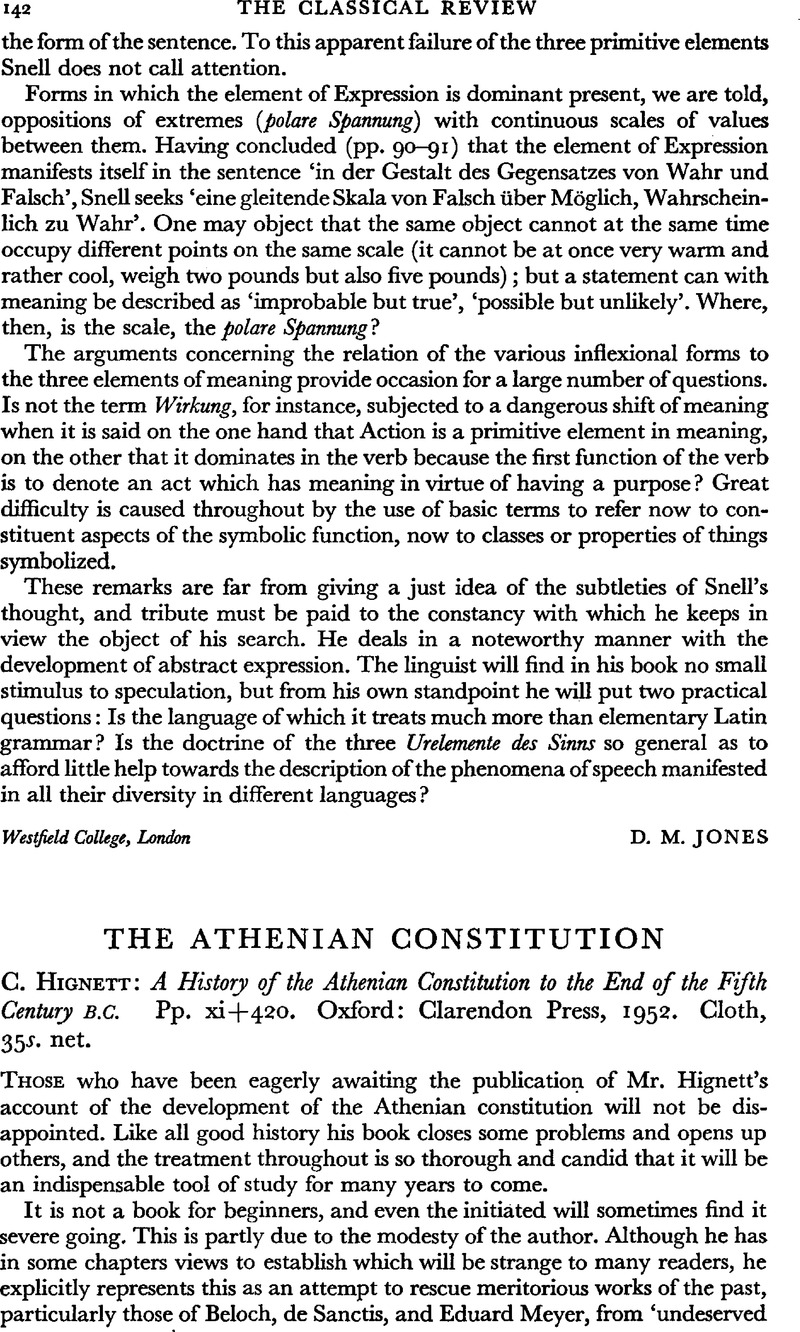Published online by Cambridge University Press: 13 February 2009

page 143 note 1 He incidentally scouts the idea that the Athenaion Politeia could be a work of Aristotle, though rightly stressing the fact that this is a conclusion of little historical importance.
page 144 note 1 Note the difference between the two as to the character of Herodotus' sources in vi. 39.
page 144 note 2 An appendix discusses the date of his reforms. Drafted by a commission with Cleisthenes at its head, they were ratified by ekklesia before the intervention of Cleomenes, but their application deferred till after the expulsion of Isagoras.
page 144 note 3 A small inconsistency here. On p. 116 we read ‘by 510 the council must have been almost entirely composed of the partisans of the Peisistratidai’; but on p. 146 H. questions an argument based on this very assumption.
page 145 note 1 There is perhaps too little jurisprudence in the book as a whole considering the exceptional importance of litigation in the Athenian system. Cf. Hignett himself on p. 822: ‘it is dangerous in this matter to infer the practice of the fifth century from that of the fourth, for the tendency in the fourth century was to limit as far as possible the judicial power of the magistrates.’
page 145 note 2 Cf. ProfessorJones's, A. H. M. Inaugural Lecture, The Athens of Demosthenes, Camis bridge, 1952.Google Scholar
page 145 note 3 In the mass of references I noted only one slip. In note 7 on p. 246 BS 1062 n. 2 should read BS 1125 n. 1.